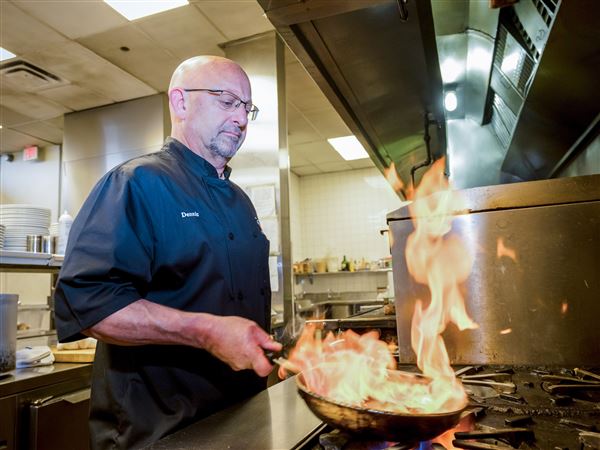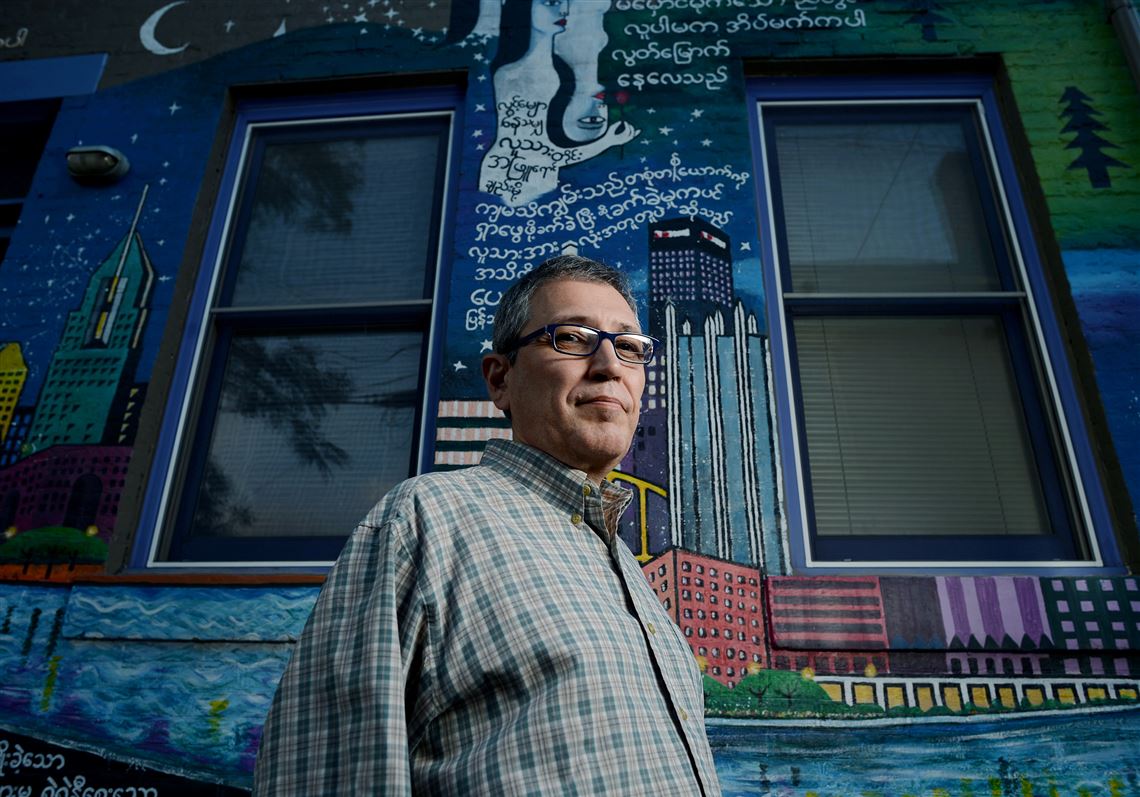In his native Venezuela, Israel Centeno is a decorated author with 14 books. In Pittsburgh, he is a hospital orderly who struggles to communicate with the patients he transports. In six months at the hospital, he has met only four patients who speak Spanish.
“Often times, because people in Pittsburgh are not used to accents, people will wrinkle their face like they smelled something bad,” he says.
Finding the time and energy to write after a 10- to 12-hour day at the hospital can be difficult, but Mr. Centeno is grateful for the opportunity to be a writer-in-residence at Pittsburgh City of Asylum. It has immersed him in English and in American and Pittsburgh culture.
His upcoming novel, although it will be in Spanish, will be his first book set in America. It will be influenced by many of his experiences at the hospital, witnessing life, death and everything in between.
Writing here poses many challenges for Mr. Centeno, who is considered one of the most important figures in Venezuelan literature in the past 50 years. But he has struggled to find an audience in the United States.
“Though there are a lot of Spanish-speaking Americans, they prefer a really accomplished English writer who uses Spanish words, like Junot Diaz,” he says.
“Maybe if I had come here when I was 20, I could have learned the language well enough to write in it. But age 58? Forget about it.”
Mr. Centeno admits he’s often baffled by American culture, which makes him cautious about adding cultural commentary. This is a huge problem, as many of his works explore dark, controversial themes through dystopias.
“In Venezuela, our people are loud, spontaneous and direct. Americans are too polite. It is impossible to tell what is genuine. … I have to smile, all the time, whether I mean it.”
Mr. Centeno will read some of his work Sept. 16 as part of City of Asylum’s celebration of the grand opening of Alphabet City. He was targeted in his country for his writing. The first time the police raided his house, he was 12. His mother fought the dictatorship, and his family was always under government scrutiny. The police seized the family’s Russian literature, thinking it was communist propaganda.
Years later, his books were confiscated by the government and banned from high schools. After a brutal attack by government agents disguised as a mugging, Mr. Centeno came to Pittsburgh in 2011 with his wife and two daughters.
“I thought I was finished ... but it’s just different now. Before I wrote because I read a lot. Now I write because I live a lot.”
He says he suffers from post-traumatic stress disorder from having to watch as his family was abused. He plans to stay in America but remains close to his country through his audience, his culture and his language.
“I am nourished by the reality here.”
Sarah Pearl Heard was a summer intern at the Post-Gazette.
First Published: September 4, 2016, 4:00 a.m.















